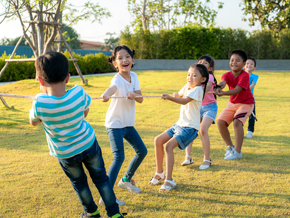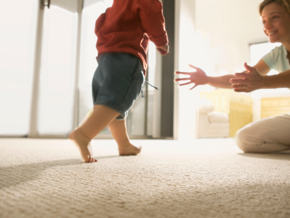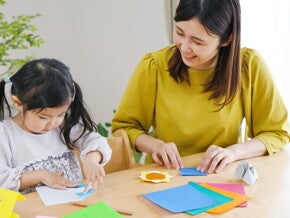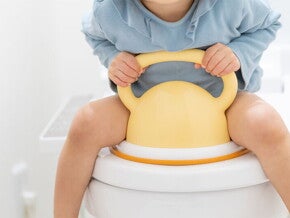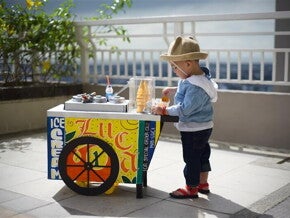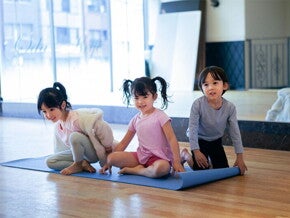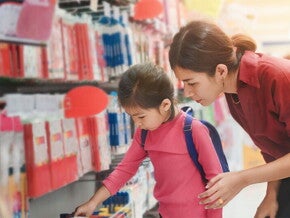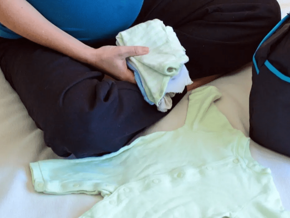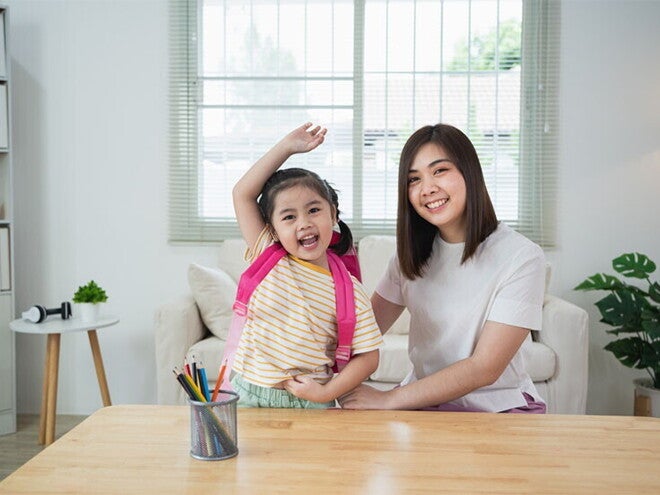
Is your child starting kindergarten? It’s a big step for your kiddo and for you. You may have caught yourself thinking, “Should I be doing more? Should they already know how to read?” But, remember, this year is about giving your child the space to grow and explore at their pace without the weight of parental pressure.
You don't want to push your child too hard academically too soon, or you risk sacrificing the one thing they need the most at this age: play. Letting kindergarteners be kids, exploring, imagining, and making mistakes is how they build a foundation for a lifelong love of learning.
What Kindergarten Teaches (Apart From ABCs)
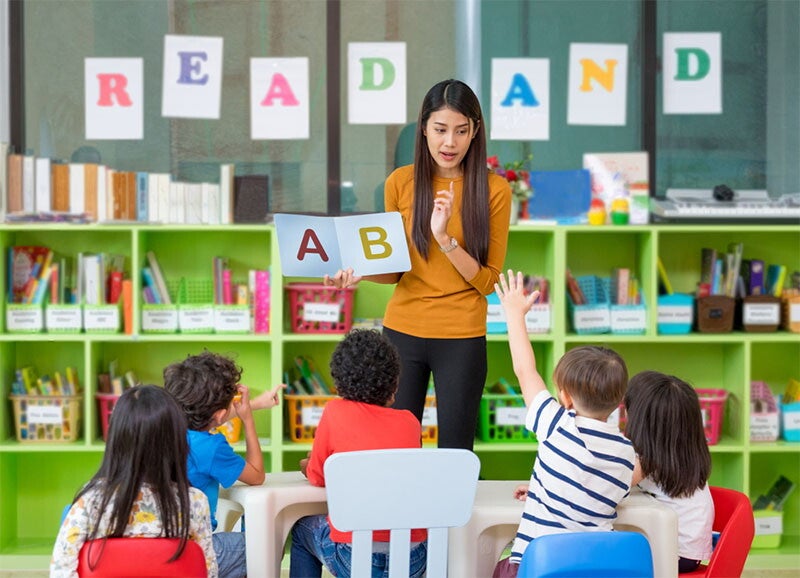
Even in kindergarten, kids can feel social pressure to fit in or perform, especially when learning feels like a race instead of a journey.
For many parents, kindergarten is their child’s first school experience, fostering their emotional, social, and cognitive growth significantly. It’s the time they learn how to share, take turns, bounce back from disappointment, and ask big questions.
You'll also see play-based learning taken to the next level. What might look simple pretend play, like running a bakery with clay cupcakes, actually teaches math, teamwork, and language skills all at once.
Play-based learning is cute and fun, but it's also evidence-based. Research in Pediatrics shows that play helps kids develop self-regulation and creativity—essential skills for lifelong learning.
4 Signs You Might Be Pushing Too Hard
Parental pressure isn’t always obvious. It doesn’t always sound like, “You need to do better.” Sometimes, you see it in your child’s routines and reactions:
- Your child avoids homework or reading time altogether.
- They throw tantrums or seem easily frustrated after school.
- They say things like, “I’m not smart” or “I’ll never get it right.”
- They seem overly anxious or perfectionistic.
These may be signs your child is feeling overwhelmed by expectations even when they’re trying their best. If a kindergartener begins to associate learning with fear or pressure, it can chip away at their motivation and self-esteem. Their behavior might be telling you they need a softer landing, not a tougher push.
Research in the Journal of Applied Developmental Psychology also shows parental pressure on academic performance could increase anxiety and make kids less motivated to learn in the long run.
When Is Family Pressure Helpful?
Not all pressure is bad. When offered with empathy and structure, it helps kids grow mentally and emotionally.
Take bedtime routines or shoe-tying practice. Gentle nudges in those moments show that you believe in their ability to grow. According to The Future of Children, kids thrive when adults set clear expectations while offering emotional support. That balance teaches responsibility without fear.
Think of it as coaching, not controlling. You're there to guide, not to hold the pencil for them.
The Fine Line Between Encouragement and Pressure
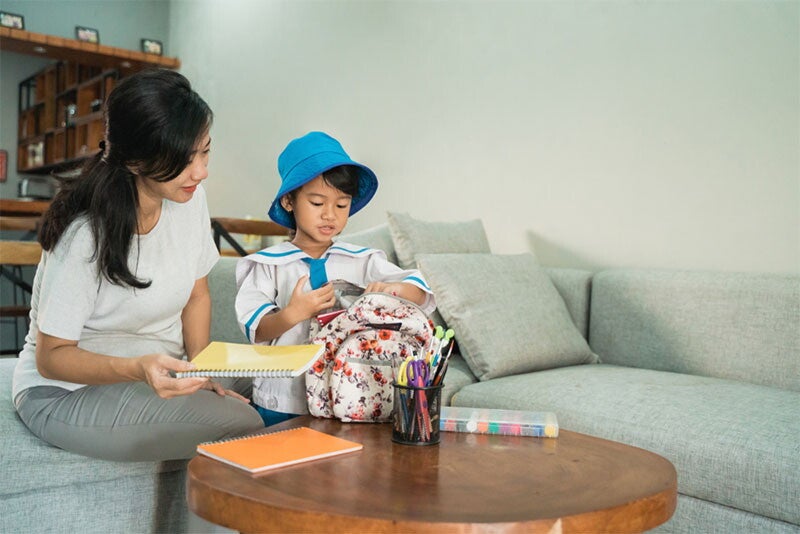
This is parental involvement: being present, encouraging effort, and showing up for the little (and big) things.
Whether it’s holding their hand when they’re trying to figure out how to write or hovering over every worksheet, there’s a big difference between guiding and pushing your child.
Encouragement feels like, “You worked so hard on that!” while pressure is, “Why didn’t you do it like this?”
Kids thrive when they feel seen and supported. If you focus too much on results instead of the effort it took to get there, they may start to believe their worth is tied to performance.
Celebrate the small wins instead. Did they try to write their name, even if it was messy? That’s a win. Did they ask questions during story time? Amazing. When you focus on how they learn rather than what they produce, you build their confidence from the inside out.
How to Support Your Child’s Learning Journey
These everyday moments teach your child that learning isn’t about getting it perfect—it’s about showing up and trying:
- Read with them, not just to them. Let them turn pages and guess what happens next.
- Make learning playful. Count stairs, name colors, or spot letters at the grocery.
- Allow safe struggles. Solving their own problems (even slowly) builds confidence.
- Be kind with mistakes. Say, “Oops! Let’s try again” instead of “Why did you do that?”
Your kindergartener needs is space to grow, space to stumble, and lots of encouragement along the way. Parental pressure means stepping back when needed and showing up with empathy. Focus on connection, not correction.
You're already doing something right just by wondering about all this. Deep breaths, mama. You’ve got this.
References
Pyle, A., & Danniels, E. (2021). A Continuum of Play-Based Learning: The Role of the Teacher in Play-Based Pedagogy and the Fear of Hijacking Play. Early Childhood Research Quarterly, 55, 14–27. https://doi.org/10.1016/j.ecresq.2020.10.006
Ginsburg, K. R. (2007). The Importance of Play in Promoting Healthy Child Development and Maintaining Strong Parent-Child Bonds. Pediatrics, 119(1), 182–191. https://doi.org/10.1542/peds.2006-2697
Stipek, D., & Valentino, R. A. (2015). Early Childhood School Readiness. The Future of Children, 25(1), 71–96. https://doi.org/10.1353/foc.2015.0005
Martin, A., Ryan, R. M., & Brooks-Gunn, J. (2022). Parental Control and Child Anxiety: The Role of Autonomy Support in Early Education. Child Development, 93(2), 514–530. https://doi.org/10.1111/cdev.13722
Zeng, G., Hou, H., & Peng, K. (2023). Growth Mindset and Academic Achievement in Early Childhood: The Role of Teacher Praise. Frontiers in Psychology, 14, 1138292. https://doi.org/10.3389/fpsyg.2023.1138292
McClelland, M. M., Tominey, S. L., & Schmitt, S. A. (2022). Self-Regulation in Early Childhood: Developing Social-Emotional Skills for School Success. Early Education and Development, 33(3), 385–403. https://doi.org/10.1080/10409289.2021.1929372












